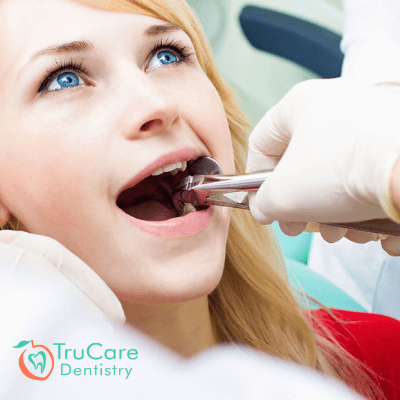Every dentist around the world tries to save natural teeth with a root canal and other restorative procedures. However, at times, the best option is to remove the infected tooth entirely. The process is referred to as exodontia or tooth extraction. Here’re crucial details of the procedure and tips to avoid post-surgery complications.
When do dentists recommend tooth extraction?
When it comes to leading reasons behind tooth extraction, decay happens to be the top one. Decayed denticle is tagged as restorable or non-restorable by dental care experts. If the decay has reached the root (abscess formation stage), the tooth is considered non-restorable and extracted.
The tooth is also considered non-restorable if the periodontal infection reaches supporting bone and triggers massive gum loss. The best option for preserving the infected site is performing dental extraction.
Tooth extraction may be necessary for patients suffering from a dental fracture, crowding, or undergoing treatment for pathologic conditions. Additionally, tooth extraction is also recommended for patients planning to undergo an organ transplant or chemotherapy.
Can surgeons and general dentists prove equally good-enough when it comes to performing tooth extraction?
The overall approach for tooth extraction is determined based on factors like age, patient’s medical history, tooth condition, and type of anesthesia that needs to be administered.
Both oral surgeons and experienced dentists can do the job equally well. However, in some states, only trained oral surgeons or anesthetists can use IV sedation. These specialists undergo training after dental school; so they can handle complicated extractions with ease. On the other hand, general dentists are pro in crowns, fillings, and restoration procedures. Several years of practice makes them perfect in tooth pulling.
Modern tools make the process simple
As the first step, dentists use a cotton swab to apply a topical numbing agent on the tooth’s outer areas (gum tissue). It helps ensure the patient does not feel any pain or sensation while injecting anesthesia.
Surgeons use forceps with blunt, clamp-like tips or those with sharp tweezer-like tips for tooth extraction. Depending on the side of the mouth, dentists also use forceps with a specially designed grip. After the removal of the tooth, surgeons use pieces of gauze to control bleeding.
Some degree of force and pressure needs to be applied during the extraction. However, the patient does not feel the pain or uneasiness while being operated. Anesthesia and advanced dentistry techniques make tooth extraction convenient for patients.
Minimizing complications
Post tooth extraction complications are rare, and several studies have proved the same.
Specialists often suggest patients opt for soft foods and avoid consumption of tobacco products to prevent dry socket. Following the instructions to clean the operated area with complete care is crucial.
The best way to put your mind at ease is by selecting a reputed dental office specializing in tooth extraction. Experienced dentists and oral surgeons can keep patients comfortable throughout the process.
Most dental offices create a plan for steps that patients need to take before and after the process to avoid complications. Your dentist may prescribe painkillers along with antibiotics to ensure there’s no uneasiness post tooth extraction. It is advisable to follow the plan and take all the recommended medications on time.
Surgical extraction
Oral surgeons are always well prepared to handle complications that can turn a simple tooth extraction into a surgical extraction.
Conditions like difficult anatomic locations, abnormal root morphology, and advanced caries make it necessary for dentists to use specialized techniques, including surgical extraction.
Pre-planning is essential
Dentist’s valuable chair time, reputation, efficiency, and the patient’s overall oral health remain at stake. Thus, surgeons try to make the process as comfortable as possible while achieving the desired outcome.
After collecting the patient’s medical history data, reviewing the oral health and the infected tooth’s condition, dentists create a good surgical course plan. They share it with the patient so that both can set reasonable expectations. Patients must share health records and details for medications that they consume. Some medicines may impact their immune system and healing ability. Thus, the dental office may advise the patient to stop taking certain medicines a few days before and after the tooth extraction.
The last option
Advanced dental techniques and preventative dentistry have made tooth extraction uncommon these days. Dental care products have made oral health maintenance simple. Plus, there is enough awareness regarding the significance of oral hygiene these days. Thus, extraction is considered as the last option.
Tooth extraction is a quick outpatient procedure that can be performed under intravenous, general, or local anesthesia. Visible tooth pulling is simple, but a tooth broken below the surface or near the gum line may need a more involved procedure. If you need a tooth extraction specialist in Roswell GA, you should fix an appointment at TruCare Dentistry.

